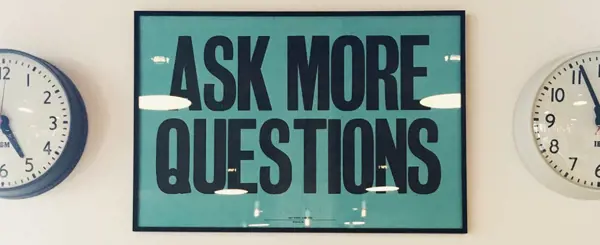As polling day nears, ‘school funding’ and the future of Britain’s education system remain a focal point of the election battleground. The release of the manifestos in early May saw a number of the rumoured pledges come into being with Labour and the Liberal Democrats, in particular, placing education at the forefront. So what policy choices are we being presented with?
Labour was the first to publish its manifesto (although perhaps prompted by its leaking), “prioritising education as it deserves” and promising to:
- Bring forward its pledge to scrap tuition fees, including students enrolled from autumn 2017 and students part-way through their courses.
- Re-introduce maintenance grants to cover living costs (to be paid for by increasing corporation tax and income tax for those earning £80,000 or more).
- Introduce a National Education Service (NES) to provide “cradle-to-grave” learning that is free at the point of use.
- Reduce class sizes to less than 30 pupils for all 5, 6 and 7 year olds.
- Provide free school meals for all primary school children (paid for by removing the VAT exemption on private school fees).
- Prevent schools from becoming academies and ‘free schools’.
- Ensure schools have sufficient resources for them to invest in new school buildings (including the removal of asbestos from existing schools).
Labour is seeking to provide changes at both primary and higher education levels. In terms of university fees, the pledge resembles that made by the Liberal Democrats in 2010 which was never implemented following the coalition with the Conservatives. Labour is determined to demonstrate its commitment to abolishing tuition fees and propose a £9.5 billion annual bill to take account of this and the anticipated rise in fees in the autumn
[1]. Further to this, Labour wants to reverse the funding cuts that have affected further education (FE) colleges and proposes to introduce free, lifelong FE colleges through the provision of new technical colleges
[2].
The Liberal Democrat Party, alongside pledging a second EU referendum, is also prioritising education and proposes to:
- Invest £7 billion in children’s education so that no school loses funding per pupil.
- Extend free school meals to all children of primary school age.
- Triple funding for the ‘early years pupil premium’, boosting it to £1,000 per pupil per year.
- Raise the quality of early years education by ensuring that by 2022, each facility has a qualified ‘early years’ teacher.
- Oppose new grammar schools.
- Give local authorities ‘proper democratic control’ over admissions and new schools.
- Devolve all monies to local authorities to ensure that new schools are built in areas where there is demand.
- Reinstate maintenance grants.
In substantiating its pledges, the Lib Dems confirm that proposals have derived from a fully costed programme and similar to Labour, this would be delivered through an NES.
The Institute of Fiscal Studies has been quick to comment in light of both these manifestos, stating that maintaining education funding at current levels would mean raising spending by £3.7 billion and that a promise to protect schools from cuts would not be cheap
[3].
UKIP is seeking to promote an accessible education system for all children and in delivering this, proposes to:
- Amend planning legislation to ensure more nurseries are built to expand childcare places.
- Bring back grammar schools and support a range of secondary schools including vocational, technical and specialist schools.
- Waive tuition fees for science, technology, engineering, mathematics and medicine (STEMM) subjects at university.
- Give local people the final say on major planning developments in their area.
Clearly, this final point would need to be carefully implemented to ensure that it does not affect the delivery of 1 and 2.
The Conservative Party has used its manifesto as an opportunity to affirm its ‘achievements’ to date and argue that education spending has been at record levels during its term of office. Going forward the Party intends to:
- Scrap free school lunches for infants in England, to instead offer free breakfasts for all children at primary school level.
- Pump an extra £4 billion a year into schools by 2022.
- Introduce new funding arrangements to open specialist mathematics schools in all major cities.
- Scrap the ban on setting up new grammar schools.
- Involve universities which charge maximum tuition fees and independent schools in the sponsorship and founding of academies and ‘free schools’.
Similar to the Lib Dems, the Conservatives do not propose any significant regulatory changes at university level and the primary focus is on improving the system available to ‘school children’. The Party has estimated that savings of £650 million would be made as a result of scrapping school dinners and that this would be recycled into school budgets. However, the Education Data Lab has commented that the provision of ‘free breakfasts’ alone could cost more than treble the £60m allocated by the Conservatives on the basis that the Party only assumes a 25% take-up and projected costs of 25p per child per day
[4].
As we can see, the parties have been quick to provide voters with ‘incentives’ and in turn have had no difficulty in broadcasting the flaws and false promises of their opponents. However the debate is seen, a new approach is required. The RIBA has confirmed in its own manifesto that the UK will need to provide an additional 420,000 new school places by 2021 and that future provision will need to recognise the role of ‘good school design’ in securing the best outcomes
[5]. The devolution of monies and control to local authorities put forward by the Liberal Democrats and the investment into facilities proposed by both Labour and the Conservatives, could, therefore, provide significant opportunities and introduce interesting changes to the delivery of Britain’s educational provision.
We just have to wait for 8 June before we can speculate further and consider what this will mean for the planning and development industry. In the meantime, should you wish to discuss further or learn more about our work in the education sector, please get in touch with a member of our
Education Team.
Sources
[1] http://www.bbc.co.uk/news/election-2017-39994886
[2] http://www.labour.org.uk/index.php/manifesto2017/towards-a-national-education-service
[3] http://www.bbc.co.uk/news/education-39795185
[4] http://www.bbc.co.uk/news/education-40032282
[5] RIBA (2017) Manifesto 2017: Building Global Britain. RIBA, London.



